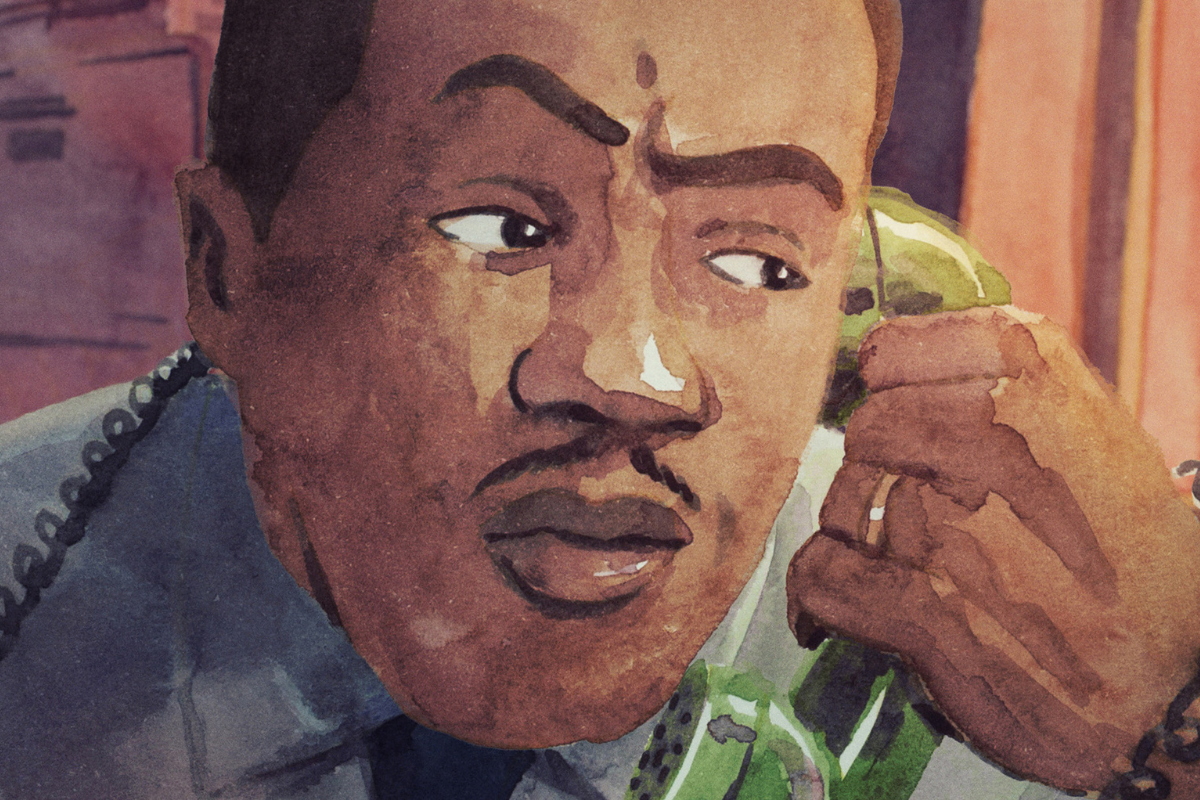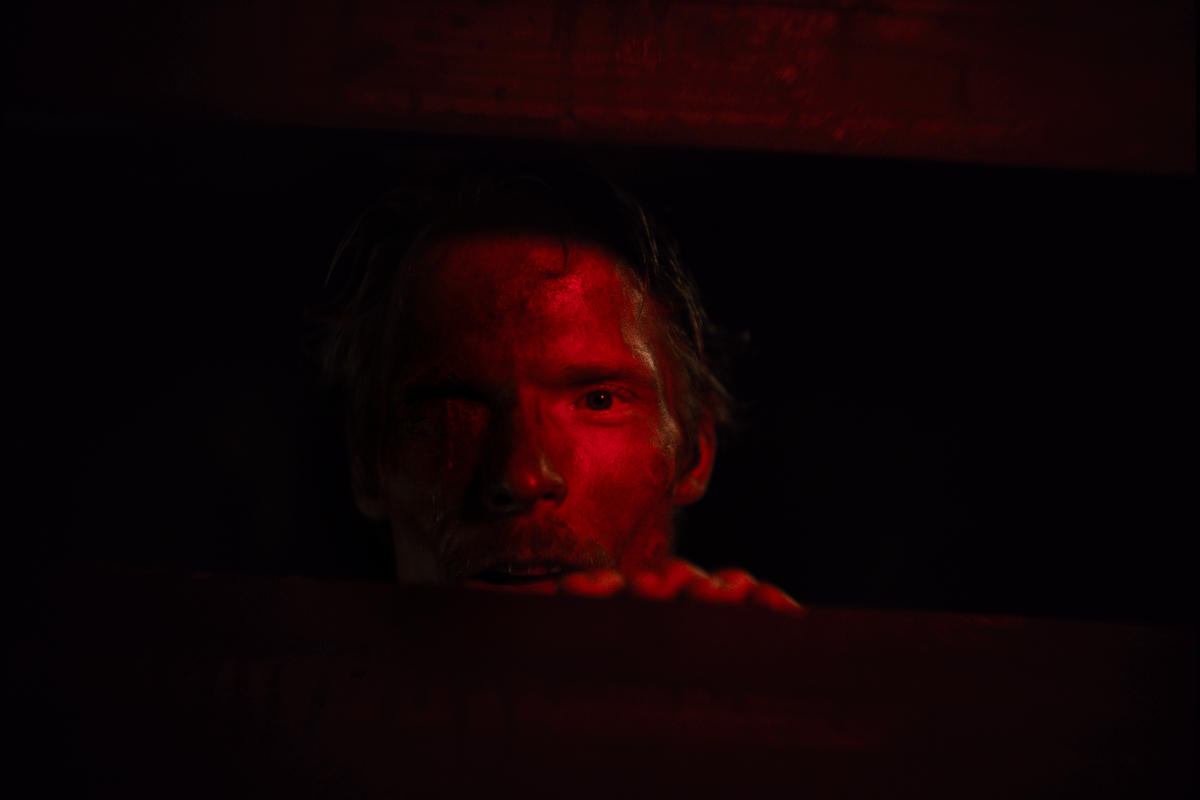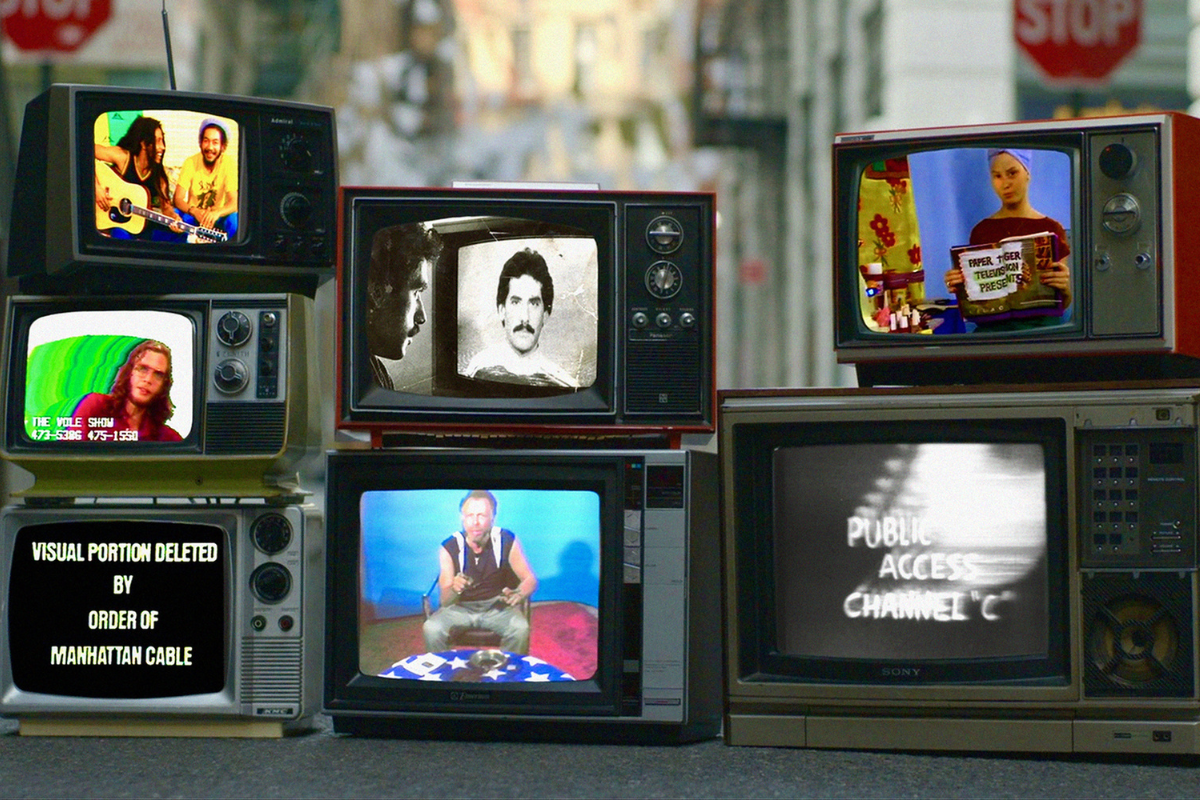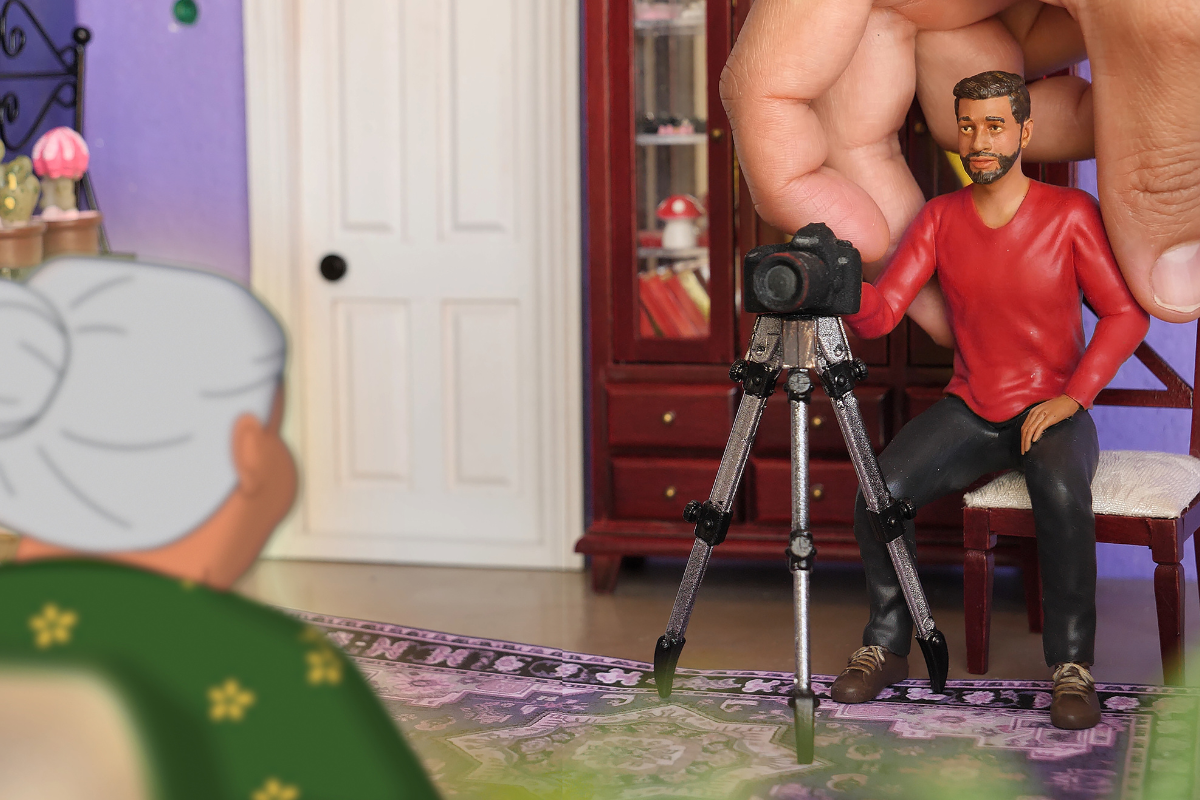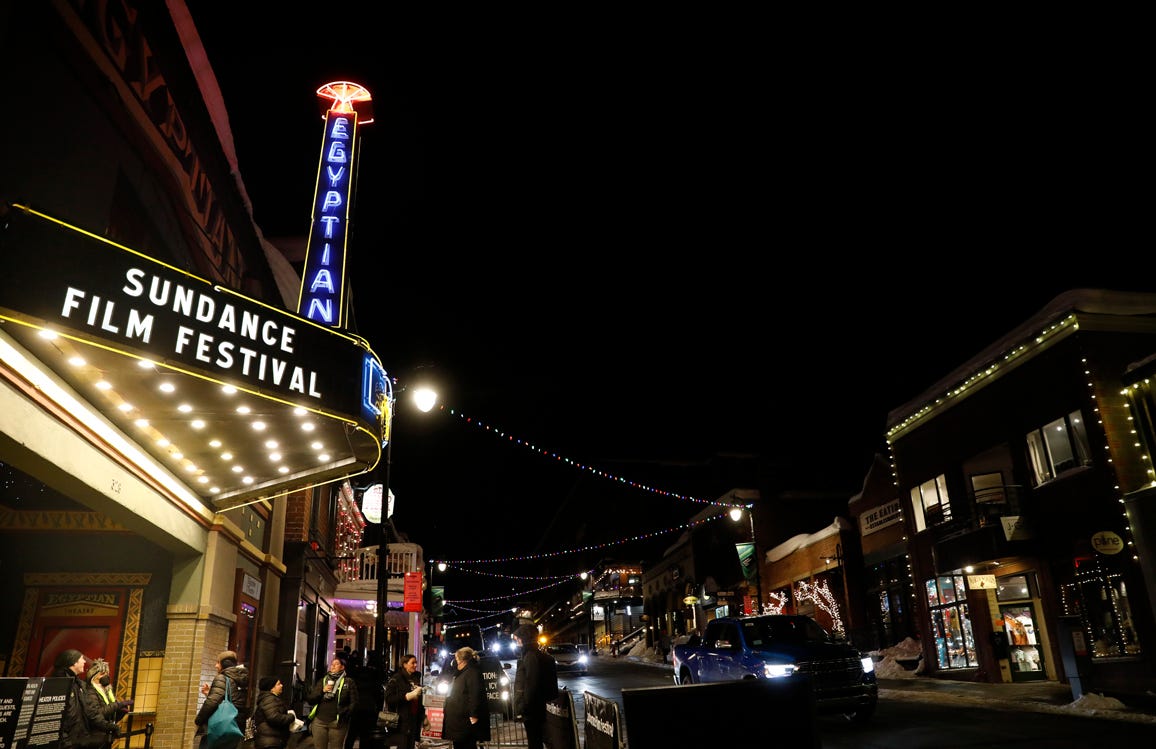Script Gods Must Die: 10 Tips For The Unknown Screenwriter, Part 1
The eternal question—does a writer need to be in Los Angeles to have a career? The answer is: Know thyself. Plenty of writers famously do not live in Los Angeles….
- DON’T GO TO L.A. UNTIL YOU’RE INVITED
The eternal question—does a writer need to be in Los Angeles to have a career? The answer is: Know thyself. Plenty of writers famously do not live in Los Angeles. Primarily through the advent of digital camera technologies your ability to make a movie outside the sphere of Hollywood is no longer an issue. This can, is, and will be done. So the simple answer would appear to be no, you do not need the mechanism or mechanisms, the industry or industries, that emanate from LALAland.
But this isn’t about hating on L.A, and a choice of this magnitude is never simple. We need to factor in the fundamental difference between screenwriters who already have a career vs. those hoping to have one.
If you query industry people, you’d get an overwhelming majority who would tell you that if you’re serious about writing as a career, you do need to be in L.A. Relationships are the key. Studio production money, the Indie "mini-majors", the agencies...all are almost exclusively out there. You’re meeting people casually you never would in Chicago, let alone in Boise, Idaho. Multiple students of mine who had no luck selling projects in Chicago moved to Los Angeles and did well after a few years���and yes, it’ll be at least a few years, even if you’re lucky and talented—of meeting people, getting optioned, signing with an agent, taking meeting, pitching, etc. For them, that process started because they were serious enough to move to Los Angeles.
Know Thyself. What do I mean by that? Know the work you’re writing, your temperament, your family obligations and job situation. Really, only youcan. There are so many variables, and no easy answers.
Not so long ago I was repped by William Morris Endeavor. Sure, I miss those gaudy agent lunches at Dolce or Knew or Che. It’s nice being at a big agency and being treated like a rock star. It’s cool to learn Matt Damon is reading your script, or that you might only be a step away from WGA representation because of a meeting your agent set up at XYZ Production Company. Agents who wield power with those fat Rolodexes can change your world. You have no access without the agent. You lose the country club membership card.
But what if you’re OK being outside the club?
What if the stuff you’re writing is not what they’re making at the Studio level? Or not going to happen on the Indie level without major actors to whom you don't have access?
What if you’re Oren Peli and you raise $15,000 to shoot for a month in an old house and make Paranormal Activity? Or if you’re Daniel Myrick and Eduardo Sanchez and you go out in the woods with a couple actors and come back with Blair Witch Project? Or if you’re Fede Alvarez who makes the micro-budget short film Panic Attack! and gets so much notice he is signed to direct the remake of Evil Dead which grosses 97 million dollars worldwide.
What if you’re a friend of mine, Tim Rutili, whose first movie was budgeted at 40K and got into Sundance two years ago without an agent? All My Friends Are Funeral Singers—look it up. These things happen, and they happen outside of Hollywood.
You don’t need to live in Los Angeles to make movies. Period.
- WRITE WHAT YOU KNOW!
As with all prepackaged notions, the cliché is true…sometimes. Only a fool wouldn’t notice that details from real life are tough to beat. You can’t go wrong populating your screen world with real world details about how Uncle Al wears that comb-over or how Aunt Ethel tears the backs off those Maryland crabs and slurps at the claws. You can’t make that stuff up. Dialogue, too. They’re tossing gems at you on the California Blue Line Saturday at midnight or noon on the line at Home Depot. Thank those good people by writing down the insanely great things they say and fitting them into the script you’re writing. If you hear it and jot it down, you just wrote it.
While knowledge on subject matter varies, research does not. Just as an actress without a drug addiction can pull off the role of a drug addict, in the era of Google, you can be a fake expert in almost any field in short order. Research the subject. Craft around a subject you know nothing about. If you’re craftsman enough, the reader will never know.
You don’t have to be a murderer to write a murderer. But it might explain why a 19 year-old at Columbia College has trouble “hearing” that murderer. Make no mistake, that’s what it takes to write dialogue: You have to hear it.
A student of mine was an Army interrogator. She wrote a war script on Afghanistan. Yes, there were interrogation scenes and they were helped by her expertise. There was detail in there that, if you hadn’t lived it, would be next to impossible to write from scratch. None of this, of course, was why she wrote the script. She had something to say about war, it was her passion.
Write what you know, sure. But write what resonates with you personally, and if it resonates universally, you might be a writer with a career in front of you.
- ENERGY
Energy. Meaning:Juice. What energy are you bringing to your writing? This has to do process—how many times a week do you write? What time of day? How many hours each session? There is no one right answer for these questions. Just as there are day people and night people, the time of day you pick isn’t the key—it’s the energy you bring to writing. I have a friend who wakes a 5:30am, is writing by 6 for two hours before heading to his 9-5 day job. He functions best this way. Another comes home from the 9-5, cooks a meal, maybe runs a couple miles, pulls out a six-pack and gets to work at 10pm when the household is quiet. Some people are weekend warriors, not even touching the script during the week. Some write one hour a day, seven days a week. Some write four hours a pop two or three times a week. Some are weekend warriors, not even touching the script during the week. Some can close a door and steal valuable energy at work. When you write is as critical as what you write. You have to bring A-Energy to this. How you do that depends on your situation. Sometimes you’re feeling blocked might simply be a case of poor energy. How do you know if you should shut it down for the night? Staring at the page for an hour might qualify (we have all been there!) looking for a solution and absolutely nothing coming. Shut it down. Live to fight another day.
- WITHHOLDING INFORMATION
Hitchcock defined suspense as:
"Suppose there's a bomb hidden in a room and it's set to go off at one o'clock. If the audience doesn't know the bomb is there, it explodes, there's a big boom, and the audience says, 'What the heck was that?'
But if the audience does know about the bomb—if they know exactly where the bomb is hidden and exactly when it will go off—that's when you create suspense. Someone goes to open the cupboard where the bomb is hidden...but at the last moment, someone else calls the first person away. Someone comes in and invites everybody to go outside to play croquet...but nobody's interested. A dog starts sniffing about the cupboard...but the dog's owner says, "Bad boy!" and pulls the dog away. The tension builds each time it looks like someone might find the bomb, or convince everybody to leave the room safely. By the time one o'clock rolls around, the whole audience is on the edge of its collective seat."
So much of storytelling is withholding information. Ask yourself: Who has the information? When do you give the audience the information? Knowing when to give and when to hold back is the essence of suspense. What you don’t want is exposition. Anyone can write a husband blathering on about his cheating wife. Fellini would show that man playfully following a stray dog, turning a corner to find his wife kissing a strange man.
Where do the twists/reveals/surprises happen in your story? Have you outlined and thought it out? Did you provide red herrings (false leads)? Knowing when to give and when to withhold information—yeah, that’s a big one.
- THE DOUBLE BIND
Put your protagonist in a double bind. If he does X, something bad happens. If he does Y, it's worse. Force him to choose...
Put him in a seemingly impossible situation with true and terrible stakes. Empathy with characters is why we go to movies—putting ourselves into that brutal, or ridiculous, or hilarious moment with them. DeNiro in Deer Hunter, not wanting to die but stepping in to play Russian roulette because—if he doesn't—Christopher Walken will die. Or Godfather 2, when Michael realizes that Fredo has betrayed him (in the Cuban nightclub). Watching Pacino’s face, his “heart broken”, having to decide if he will kill his own brother or not is one of the great moments in film.
Do you have a gut-ripper like this? What does your protagonist have to lose? What does she love? Rip it away from her. What does she do when her inner journey and fear conflict with what the story forces her to do? How far will she go? Where's your double bind?
- SHOW US THE MOVIE IN YOUR MIND
I don’t want to read your screenplay. Wait, no, let me be more specific: I want to see your movie, not read your script. I don’t want to read screenwriting lingo. It wears out my reader’s eye. BACK TOs, SMASH CUTS, CUT TOs, (beat) and (pause), and ANGLE ON’s. Show me the movie in your mind. Fight to not write technical screenwriting lingo. For instance:
INT. CAR- SUNDAY MORNING
Traffic is at a standstill in the shadow of Soldier Field. Professor Pauly stuck behind the wheel, rolling down his window, feeling the cold November Bear air.
MULTIPLE SHOTS- FANTASY SEQUENCE
Aaron Rodgers throws for one- two- three touchdowns against the feeble Bear defense.
BACK TO SCENE
Professor Pauly smiles and rolls the window up, the damn Bear air too cold.
How about this instead, a bit cleaner:
INT. CAR- SUNDAY MORNING
Traffic at a standstill in the shadow of Soldier Field. Professor Pauly stuck behind the wheel, rolls down his window, feels the cold November Bear air.
FANTASY- AARON RODGERS
Throws one-two-three touchdowns against the feeble Bears.
PAULY
Smiles as he rolls up the window, the Bear air too cold.
- AVOID UNNECESSARY ACTION LINES
Screenwriting manuals might tell you: Don’t let a page of dialogue go by without action breaks.
Absolute BS.
Any day of the week I will take a page of straight dialogue to action lines inserted for no reason. Never jam your script up with useless and boring filler for the sake of breaking up dialogue. You need to understand the difference between essential and non-essential action. Please don’t tell me every last detail of what the camera is seeing…
Professor Pauly walks into the room, placing left foot in front of right.
Waldo looks down.
Waldo turns around.
Waldo smiles.
Tweetie looks to Putty Tat and smiles.
Do you really believe the actress is going to remember that on page 63 you, the writer, wanted them to sigh before delivering that line?
The only reason action lines exist is to advance story. We need to need it in the script. Look at the action lines you just wrote. Now take them out. Does the scene still make sense? If so, it stays out. You answered your own question: Do I need it?
- PLAUSIBILITY: THE BOWLING BALL TEST
I'm a drag. If you ever go to the movies with me, I apologize in advance. Why? Plausibility.
Obviously, standards shift depending on genre-- if it’s Michael Clayton or Zombieland, Erin Brockovich or Airplane! More is expected from, say, a drama than a broad comedy.
For dramas, real world rules are in place. If you write something that would never happen, it raises a red flag. If your audience can't "buy" X Y or Z, you will lose them. Movies by their nature are a fantasy, sure, but if we're not grounded in some sense of reality, then that's all it is—fantastical. This is fine, if you're writing Donnie Darko, but not so fine if it's Donnie Brasco.
If a bowling ball drops on the foot of a character in your drama, it should hurt. Real world law counts. Gravity applies. This goes for classic movies as well…for instance, The Wizard Of Oz...
Am I the only one to wonder: A bucket of water? In that exact corner of the castle? Let's see if I've got this right: Water is death for the Wicked Witch of the West. Being all powerful, you'd think she'd have left a general order for NO water allowed in the castle. It also means she's never taken a drink of water or a drink of anything in her entire life, or showered...but let that one go for now...
Wait...did one of her winged monkeys bring the water in, not comprehending her weakness? Maybe an ambitious Tower Guard was plotting an overthrow? How all-powerful is she if, when she gets doused by a swish of water, her beautiful wickedness goes pure liquid? OK, I will now shut up.
- THE NAME DISEASE
“Abe Lincoln, I had no idea you were so obsessed with vampires…”
“Abe Lincoln, how about starting with: Four score and seven years ago…”
“Petey, bro, how many times can one dude see The Hangover 2?”
"Sheldon, I thought I told you to take the garbage out. Oh, and Sheldon, don't forget, recycle!"
Are you using character names in dialogue too often? If so, you've got the name disease. This is a lazy writing habit. Did you use Petey’s name in dialogue three times on a single page? Cut some, or all of them. When you’re talking to someone in real life who you know, how often do you use their name?
- MAKING A TARANTINO MOVIE WITHOUT TARANTINO MONEY
So many Tarantino wannabes. Columbia College Film & Video scripts are filled with extensive action sequences involving gun play, car chases, foot chases, martial arts fight choreography, special blood and makeup needs, or VFX. When I ask Columbia kids what the budget is—which is a ridiculous question because it's, by definition, zero-dollar—they feel optimistic about being able to attain Tarantino-style effects. I groan. I’ll then hear how they're aware of the dangers and how they’ve devised a shot list that will be both innovative and fun at the same time. They’re confident they can pull it off for dollar zero. Some weeks later I'll inevitably here about some technical snafu, the inevitable, unforeseen disaster that sabotaged their plan. When the film screens, well, it's not Tarantino. How could it be? If you don't have the resources to be Tarantino, Robert Rodriguez, John Woo, or Tony Scott...why would you try to be? Ambition is great but sometimes it pays to be a bit more pragmatic. If all you've got is micro-budget money, be wary about trying to make Kill Bill.
- MOTIVATION TO WRITE
You want to say something. You go about saying it. Then...life intervenes So many distractions—work or family. Like Bugs Bunny said: "Another day, another carrot."If you commit to write a screenplay, it needs to be a priority. Examine the reasons why you’re writing. What motivates you? Money? Legacy? The need to tell a great story?
We all know that money motivates. Landlord gets his $$$ end of the month. Noted poet Charles Bukowski said he always wrote better after eating a porterhouse steak than a nickel candy bar. Meaning: Suffering for your art is overrated. On the other hand, if you're only in it for the $$$, you might be bound for double doses of Zoloft. Any idea how many people write screenplays vs. how many make it to Writer's Guild status? The best motivation for writing is found at the core of emotion, something personal to you that will translate into a core, universal truth for an audience.
What is it exactly you’re trying to say with your movie, and why? Have you ever thought it?
You should.
Related Articles and Tools to Help:
- More Script Gods Must Die articles by Paul Peditto
- Balls of Steel: 7 Lessons in Outlining, First Draft & Fear, Oh My!
- 10 Steps to a Bullet-Proof Outline… Before You Start Writing Script Pages On Demand Webinar
Watch ScriptMag Editor Share Her Advice on Facing Your Writing Fears
Jeanne Veillette Bowerman shares her personal story of facing her fears in order to propel her writing and her career. Click on the image below to watch Jeanne's advice. In just eight minutes, you might have a whole new perspective.
PAUL PEDITTO is an award-winning screenwriter and director. His low-budget film Jane Doe starring Calista Flockhart won Best Feature at the New York Independent Film & Video Festival. He just finished production (Nov. ’24) on Dirty Little Secrets, a $350,000 dollar Indie feature shot in Chicago. Six of his screenplays have been optioned including Crossroaders to Haft Entertainment (Emma, Dead Poets Society). He recently wrote and produced the micro-budget feature Chat, currently distributed on TUBI, iTunes, YouTube, and Dish Network by Gravitas Ventures.
Over the past decade, Mr. Peditto has consulted with over 1,000 screenwriting students around the world. He has been a Featured Speaker at Chicago Screenwriters Network, Meetup.com, Second City, and Chicago Filmmakers. He has appeared on National Public Radio and WGN radio, and reviewed in the Chicago Tribune, Chicago Sun-Times, L.A. Times, and the New York Times.
Peditto is an adjunct professor of screenwriting at Columbia College. Under his guidance his students have written and produced films that have appeared in major film festivals, have semi-final placings at Nicholl Fellowship, and have won awards and screened at film festivals around the country. His new book, The DIY Filmmaker: Life Lessons for Surviving Outside Hollywood is available through Self-Counsel Press on Amazon. Follow Paul at www.scriptgodsmustdie.com and on Twitter @scriptgods.



